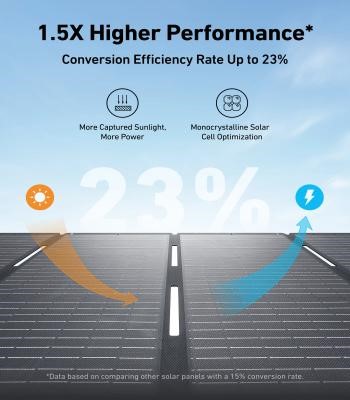Solar generators are a popular choice for providing clean and renewable power in various settings, from outdoor adventures to emergency situations. Understanding the factors that impact the runtime of a solar generator is essential for planning and optimizing its performance. In this article, we will explore ten key considerations that determine how long a solar generator can run, providing detailed explanations for each factor.
10 Factors Affecting the Runtime of a Solar Generator
Battery Capacity
The battery capacity of a solar generator is measured in watt-hours (Wh) or amp-hours (Ah). A higher capacity battery can store more energy, allowing the generator to run for a longer duration between recharges. It is essential to choose a solar generator with a battery capacity that matches your energy requirements to ensure sufficient power supply.
Power Consumption
Understanding the power consumption of the devices and appliances you plan to connect to the solar generator is crucial. Devices with higher wattages will drain the battery faster, reducing the overall runtime of the generator. It is advisable to use energy-efficient appliances and prioritize essential devices to maximize the operational time of the solar generator.
Solar Panel Efficiency
The efficiency of the solar panels directly impacts how quickly the battery of the solar generator can be charged. High-efficiency solar panels can convert a greater amount of sunlight into electrical energy, allowing for faster charging and longer operational durations. Investing in high-quality solar panels can improve the overall performance of the solar generator.
Sunlight Intensity and Duration
The intensity and duration of sunlight play a significant role in determining the charging capacity of the solar panels. Maximum sunlight exposure, free from shading or obstructions, is essential for optimal charging performance. Factors such as the angle of the panels and seasonal variations in sunlight hours should be considered to maximize energy production.

Weather Conditions
Weather conditions, such as clouds, rain, or snow, can affect the amount of sunlight reaching the solar panels. Cloudy or overcast days may reduce the efficiency of the solar panels, leading to slower charging times and shorter operational durations for the solar generator. It is important to account for weather variability when estimating the runtime of the generator.
Battery Health
The health and condition of the battery in the solar generator impact its overall performance. Regular maintenance, proper charging practices, and avoiding deep discharges can help prolong the battery life and ensure consistent operation. Monitoring the battery health is essential for maximizing the operational time of the solar powered generator.
Charging Time
The charging time of the solar generator determines how quickly it can be replenished with energy. Shorter charging times allow for more frequent recharges, ensuring a continuous power supply and longer operational durations. Fast-charging capabilities and compatible charging accessories can help optimize the charging process.
Temperature
Temperature extremes, whether excessively hot or cold, can affect the efficiency and lifespan of the battery in the solar generator. High temperatures can accelerate battery degradation, while cold temperatures can reduce charging efficiency. Proper temperature management and monitoring are essential to maintain the optimal performance of the solar generator.
Load Management
Efficient management of the devices connected to the solar generator is crucial for maximizing its operational time. Avoiding simultaneous use of high-power devices, prioritizing essential appliances, and implementing power-saving measures can help extend the runtime of the generator.
Inverter Efficiency
The inverter in the solar generator converts the stored DC energy from the battery into AC power for running household appliances. Choosing a solar generator with a high-quality inverter can improve overall system efficiency and extend operational durations.
Conclusion
By considering these detailed factors and implementing best practices for solar generator usage, individuals can effectively maximize the operational time of their solar power system. Customizing system configurations, monitoring energy usage, and optimizing charging strategies are essential steps to ensure a reliable and sustainable power supply from a solar generator.